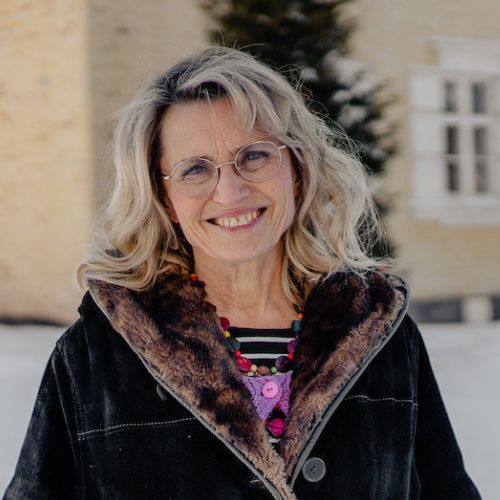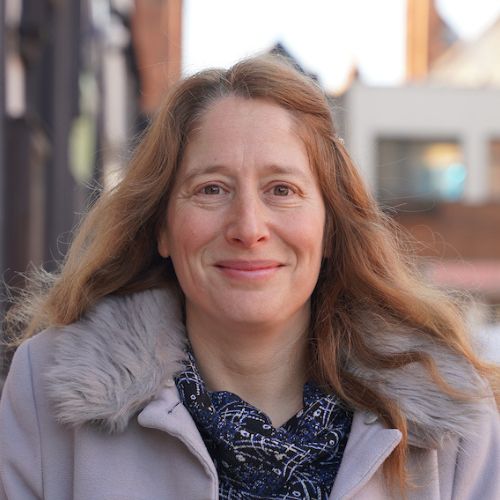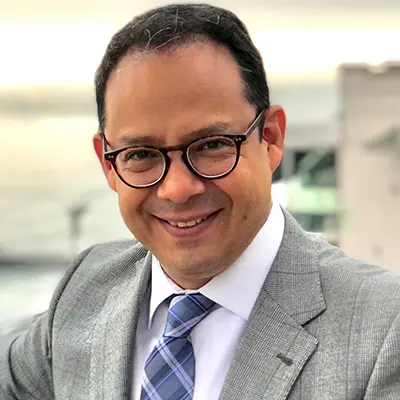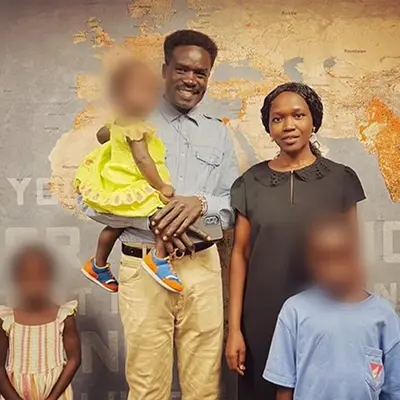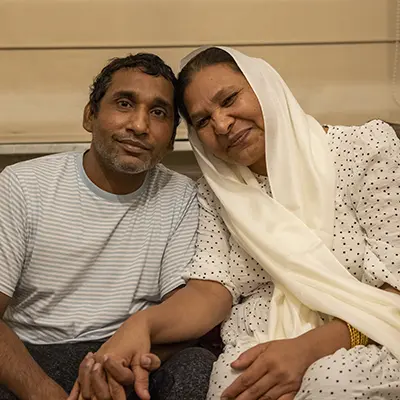- Wide implications for Russian religious groups which are not permitted to own property
- Case pending at top European Court
STRASBOURG (30 April 2020) – Vitaliy Bak, the leader of a Baptist community in Southern Russia, may soon be forced to demolish his house for holding allegedly illegal religious worship services there. Amidst the corona crisis, the city administration has filed a lawsuit and asked the local court in Novorossiysk to order the demolition of the house – in which several people live – simply because religious services were held there. Under Russian law, communities with the status of a religious group cannot own property and must therefore meet in residential buildings.
This comes after the property was sealed off by the authorities in July 2019 based on the same allegations. In December 2019, ADF International filed an application alleging violations of freedom of religion on behalf of Pastor Bak against Russia at the European Court of Human Rights. An urgent letter has been sent to the Court to inform it of the increased pressure on the community while the Court is deciding whether or not to hear the case.
You are currently viewing a placeholder content from YouTube. To access the actual content, click the button below. Please note that doing so will share data with third-party providers.
More Information“No one should be persecuted because of their faith. Everyone has the fundamental right to choose their religion and practice it alone and with others, in public and in private. The lawsuit to order Vitaliy Bak to demolish his own property comes on top of previous raids and forced closures. This is deeply concerning for religious minorities in Russia. This house was the only place in which his group could meet. Religious communities should be free to worship without government interference. Pastor Bak’s case marks a dangerous return to darker times in history, when the places of worship of disfavored religious groups were routinely shut down and even demolished using the pretext of alleged administrative violations.
We brought this case before the European Court of Human Rights in order to reopen pastor Bak’s place of worship and to ensure that Russia guarantees all its citizens their inherent right to freely practice their faith. Now, as the case develops more urgency and pastor Bak’s property is in danger of being destroyed entirely, we have informed the Court of these latest developments,” said Felix Böllmann, Legal Counsel for ADF International and lead counsel for Vitaliy Bak at the European Court of Human Rights.
Religious minorities in Russia
Bak is the leader of a Baptist community in Verkhnebakansky, Russia. Authorities sealed areas of his property shut in July 2019. Formally, they accused the community of unlawfully using a residential property for worship. In addition, they said the building had not been secured in accordance with Russian anti-terror laws. The first lawsuit demanded a ban on religious activities in the building. At the first level, the court ruled in favour of the Baptist community, but the authorities won the following appeals. While these appeals were pending, an agent of the Federal Security Service – successor to the infamous KGB – together with police and local government officials raided the building during a festive religious service. After the refusal of his appeal at the Supreme Court in Russia, Pastor Bak took his case to the European Court of Human Rights.
Now, while this case is pending at the European Court, the Russian authorities have applied to the local court to order pastor Bak’s property to be demolished. This came after two additional visits by the authorities to ensure the property remained closed. These inspections found no violations by the community but they nonetheless claimed that the house was not a residential building. Initially, the request to demolish was put on hold by the local court for formal reasons, though the lawsuit is expected to continue as harassment of the pastor Bak’s community persists.
Vitaliy Bak, the applicant in the case, said, “The authorities now applied to order us to demolish the property for a second time. I bought this house for myself and my family. The Russian law says I can host religious meetings in my private property and that’s what I was doing until the authorities came for us. It started with the threat of legal proceedings and culminated in a raid during a service and the forced closure of the building. Now I can’t use my own property, my religious community has no place to meet, and my house may be demolished. Currently, due to the corona crisis, we are forced to meet virtually, and it is uncertain when legal proceedings will continue. Nevertheless, we fear what the authorities will do next as soon as the corona measures are lifted. My dream is that our small group of believers will be able to worship together safely and enjoy the freedom protected in the Russian constitution.”
Russia in conflict with international law
According to the US report on religious freedom in 2018, Russia prosecuted members of many Christian denominations and others for so-called “unlawful missionary activity”. Police conducted raids on the private homes and places of worship of religious minorities. These groups report that local authorities have used anti-extremism laws to add to the government’s list of banned religious texts. Officials prevented religious minority organizations from obtaining land and denied them construction permits for houses of worship.
Article 9 of the European Convention on Human Rights enshrines the right to freedom of religion or belief which includes the right to manifest one’s religion in community with others. Additionally, Article 11 protects the right to freedom of assembly and Article 14 secures freedom from discrimination on the basis of religion.
“Everyone has the right to choose their religion and to express it publicly and privately. This includes the freedom to do so in community with others. By ratifying the European Convention on Human Rights, Russia has agreed to be held to account on its human rights record. Respecting the religious freedom of its citizens is not just a right protected by the Convention, but a litmus test for democracy. We are hopeful that the Court will agree to hear the case of Vitaliy Bak and his community,” said Robert Clarke, Deputy Director of ADF International.



